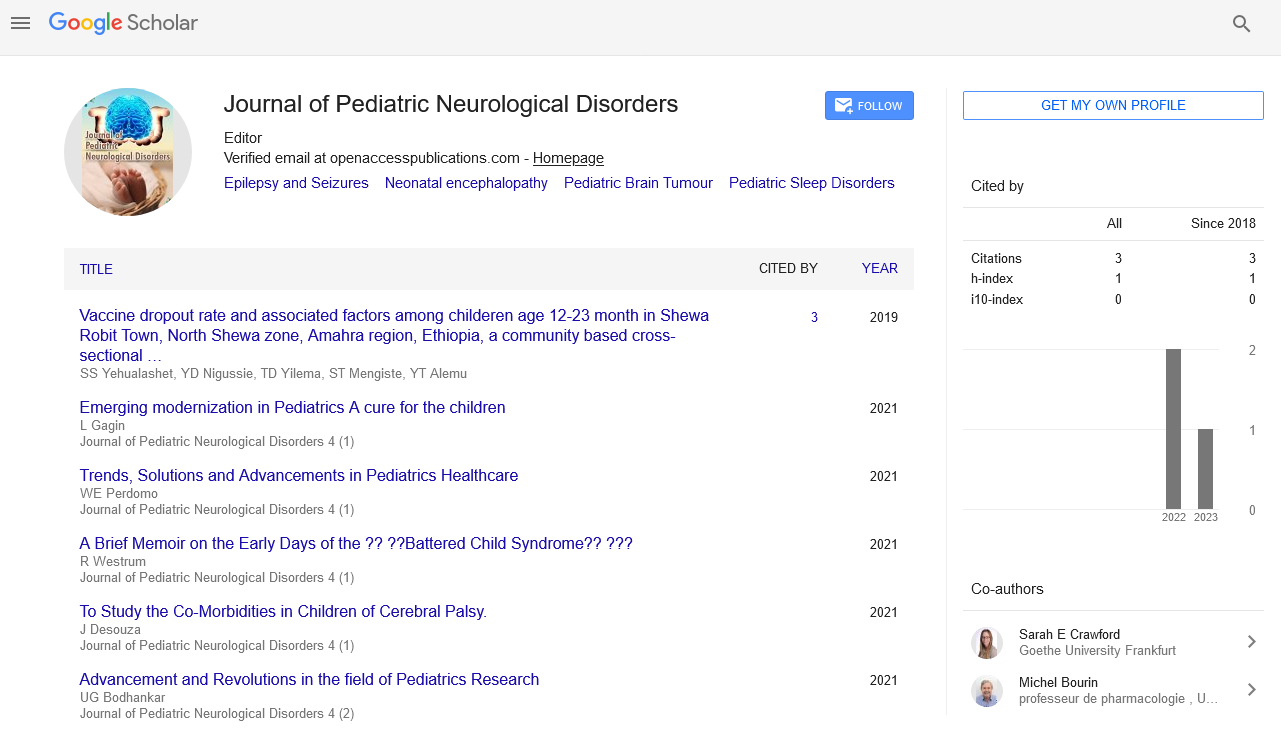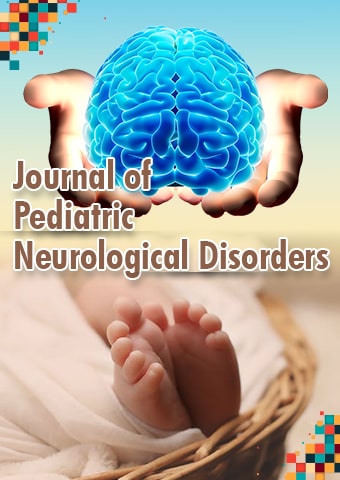Editorial - Journal of Pediatric Neurological Disorders (2021) Volume 4, Issue 4
Symptoms, Diagnosis And Treatment For Dyspraxia In Children
- Corresponding Author:
- Roberta Bondar, Department of Neurology ,University of Western Ontario, Canada, E-mail: robertabondar@gmail.com
Abstract
Introduction
A condition which occurs mostly in children’s at the age of 6 to 8 years, in simple terms called as Learning difficulties or Motor dysfunction and developmental coordination disorder (DCD). Also named as “Brain damage”.
The persons with Dyspraxia are having the difficulty in learning the things and completing the tasks. This can be from the simple moments to complex ones. Often it may have the problem of language and may have difficulty in thought process and perceptions. It will not effect to the individual’s Intelligence, but it can cause the learning disabilities and problems. Dyspraxia is an Immaturity state, in that brain does not pass the information which is transforming from the neurons and neuronal signals. A person with this disease cannot plan and what to pan about next step, completely in a blank state.
According to NINDS (National institute of Neurological disorders and strokes) people with this disease can be out of sync and out of environment. Around 20% of people in India is facing this problem, in that approximately 3 to 5 % is having severe problem, and out of 10; 5 children is evident with dyspraxia and most of them are boys. In some regions still debates and discussions are going on whether this disease is diagnosing in girls or not.Survey shows that united kingdom, London many children with this condition and effecting with these learning problems.
Major and common symptoms which are showing in children
It may vary from person to person and age to age in every individual. Those symptoms are different and some common symptoms are :
• Loss of balance in body
• Poor body posture
• Feeling of tiredness (Fatigue)
• Feel of Clumsiness ( Things, Furniture)
• Perceptions like an Illusions and Hallucinations.
• Having problem in speech (Expressing in different sounds)
• More Hand moments and co-ordinations ( leads to Developmental Disorders)
Diagnosis
Diagnosing by Psychological way, like Educational Psychologist or Pediatrician specialist for children or Occupational therapist. Carrying out an assessment details like how he or she is behaving like mental status, learning abilities, activity participation, and motor skills and neuronal abilities.
Physical skills
Also called as Gross motor skills, which is using of body moments and postures that includes Jumping, Walking, Running, Cycling etc.
Fine motor activity
Activities like paper cutting, tying shoelaces, writing, Observing how well the children will do these small muscle moments.
Symptoms in children in the age of months
It may take long time to sit, walk, crawl, speak and stand. While speaking or answering the questions they feel hard to speak and make sounds and sometimes they will repeat the same thing which we did.
Early childhood
Hard to give moments, inactive state, not performing well, well dressed up. Problem in doing physical activities, indoor and outdoor games, most importantly they cannot concentrate. Shard to focus on things and studies, difficulty in learning new things.
Later in childhood
Not participating in any kind of sports or games, lack of decency and dignity, difficulty in handwriting and solving the problems, they should not follow any rules and regulations.
In adults
Lack of clarity in speech, Insomnia, Difficulty in gestures and hand moments, for boys having trouble in grooming, shaving for girls; Applying of makeup and dressing up, selecting of things. In some cases they will frustrate so easily, and aggressiveness, anxiety, Unable to do exercise or dance.
Treatment
Vary from individuals, commonly used treatment ways are: Occupational Therapy, Speech therapy, motor skills training. For perception required special training process.
Related to other disorders or diseases
Autism, Dyslexia, and Hyper reactivity.

